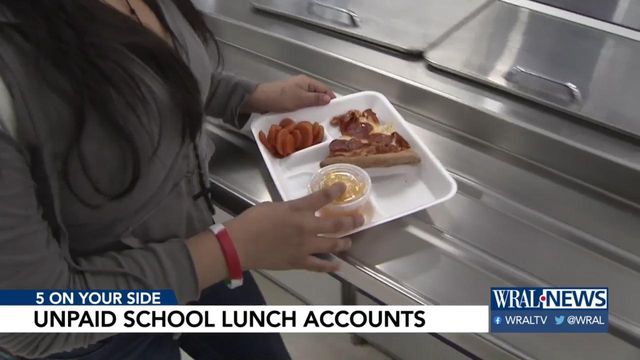What happens in North Carolina when a child can't pay for their school lunch?
5 On Your Side looked into what happens in North Carolina schools when kids don't have the money to pay for lunches.
Posted — Updated5 On Your Side looked into what happens in North Carolina schools when kids don't have the money to pay for lunches. It turns out the state's largest school districts each handle payment problems differently.
Una Lynch works with child nutrition services in Wake County Public Schools. She says, if efforts to get the parent to pay don't work, the county resorts to what they call an Angel Fund -- money donated by other parents and staff specifically to cover school meals. "We take care of our children," Lynch said.
If that account runs out of money, children, at a minimum, are served fruits and vegetables free of charge so that a debt is never owed.
A spokesperson from Durham Public Schools said it's different in their district. The county ended the last school year with 4,294 students owing a combined total of more than $243,000. After exhausting all options, unpaid balances are paid off with the school district's general fund.
Officials in Cumberland County said the last school year with $6,300 owed in overdue lunch accounts. The school system covers any unpaid balance.
Johnston County officials said they do not carry over balances. Between reminders, donations and PTA assistance, bills are covered.
All four counties agreed -- no students leave the lunchroom without something to eat, citing reasons like:
"It's too emotional for that child."
"We don't want to embarrass that child in front of other students."
"We want our children to learn, and hungry kids cannot learn."
Schools say the goal is clear -- get families who can to pay for and assist families who need help. Most importantly, let kids eat.
• Credits
Copyright 2024 by Capitol Broadcasting Company. All rights reserved. This material may not be published, broadcast, rewritten or redistributed.





